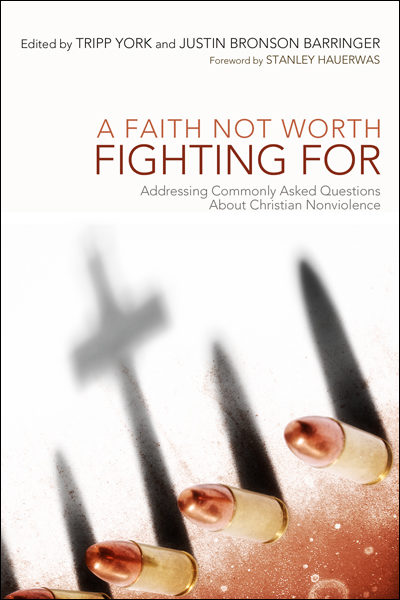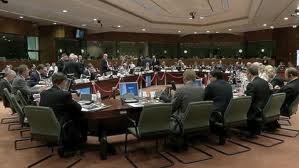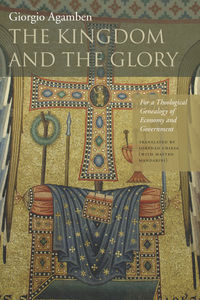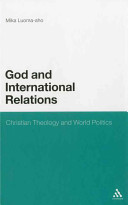The conservatives did what they had to do to win. They ran out the clock, wore people down, kept their troops in line, and ultimately prevailed thereby. Not letting the Assembly debate the issue of the Authoritative Interpretation, however, is going to be a costly mistake. My sense is that commissioners thought that this is something like the ordination question that we debated for so many years. People could get only so far in one Assembly on that issue, but would reach an impasse, whereupon folks would realize that it would just have to wait until the next Assembly to get to the next step. But marriage is very different from ordination. Councils of the church perform ordinations, so you have to get a group of people to agree to move forward. Marriages, however, are performed by individual pastors. And the emotion surrounding a marriage is way higher than any ordination.
When the Committee on Middle East Peace finally made its motion to divest–you guessed it– a substitute motion was made, not divest but rather to invest in the Occupied West Bank. This was a masterstroke of polity, but a completely ridiculous proposal of policy. Presbyterians suffer from congenital niceness, which is the main reason that it had taken us eight years even to get to the point where we could make the least confrontational action possible on the issue, selling our own stocks and bonds.

[Below is an excerpt from A Faith Not Worth Fighting For: Commonly Asked Questions about Christian Nonviolence. We welcome comments, responses and reviews.] In 1569, a Christian by the name of Dirk Willems was burned at the stake for committing a capital crime: being an Anabaptist. It has been jokingly said that….
This was my first experience of how the conservatives would use parliamentary maneuvers to block what was shaping up to be a progressive assembly by proposing study after study, utilizing minority reports and substitute motions designed to keep the Assembly from making decisions or even hearing about some important issues for as long as possible, if at all.

WRITING some 50 years ago, Archduke Otto Hapsburg, the last pretender to the crowns of Austria and Hungary, warned that economic cooperation alone would not satisfy the peoples of Europe and that European unification could not succeed unless it was imbued with an abstract principle. Only something as mystical, he wrote, as the Holy Roman Empire could give people hope, a sense of religious renewal and combat the pernicious effects of local interest, chauvinism, xenophobia and racism. Today’s European crisis indeed shows that great political institutions cannot be constituted solely on a rational basis or through the bureaucracy and incrementalism of Brussels.

It is perhaps inevitable that the claims of a thinker such as Agamben should be profoundly annoying to those firmly rooted in a hardcore “historical materialist” perspective. Despite the fact that Marx himself was consistently fascinated with religious and theological matters insofar as they reflected the material arrangements of society, his followers, disregarding his own admonitions on dogmatism, have too often succumbed to a reflexive disdain for any analysis redolent of ‘spirit.’ And if Agamben’s claims are arguably exaggerated, then the same could also be said of the claims of his more vehement detractors. […]
What might happen if we read the Gospels afresh not from the perspective of distant struggles for justice or objectified notions of ‘the poor’ (as if ‘they’ were no more than a category) but from the perspective of those in our cities and towns who are considered ‘worthless’, part of an ‘underclass’, ‘surplus labor’…..?
Atheism is all the rage today. That is, a kind of rejection- whether a traditional form of atheism, or the Christian rejection of certainty- is catching on. Some in the emerging church circles call for an “epistemological humility,” a theological hedging that tempers a rigid Evangelical orthodoxy. Still others, such as Peter Rollins, turn to more philosophical traditions, such as that of Hegel, which value a “negation.”
Rollins summarizes this kind of Christian A/theism in a number of places, and thus offers a helpful summary in his chapters in Church in the Present Tense. Providing a kind of archeology of modern categories through the thought of philosophers like Kant and Hegel, he states that there is a moment of negation when the ideas and values are denied. In turn then, he says, there comes a moment of double negation- that place when even the denial is denied.
Unfortunately, Peter and his philosophical partner Hegel are about 1700 years late. The desert monks spoke of a similar path, just without the seeming circularity of modern critiques of metaphysics.

